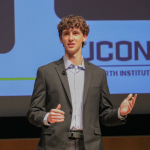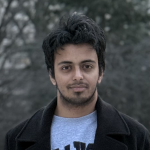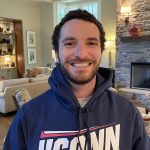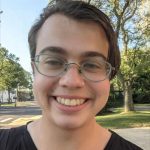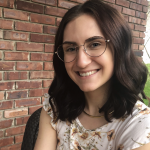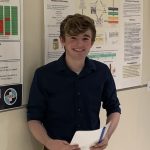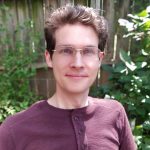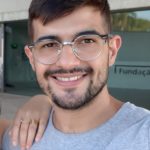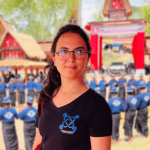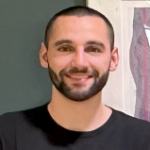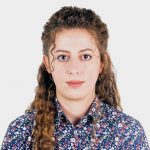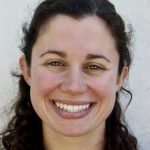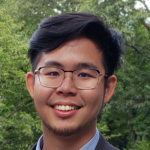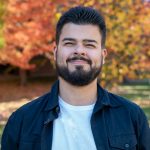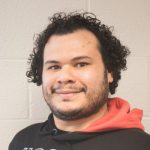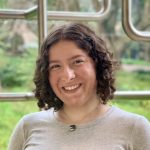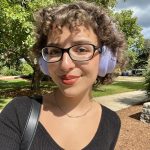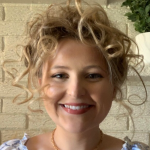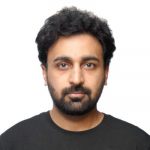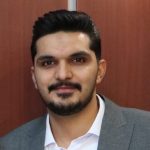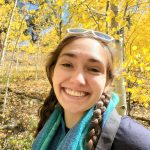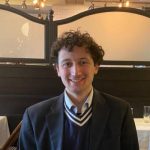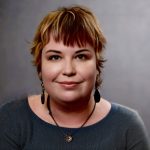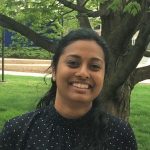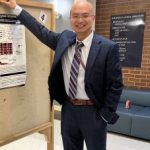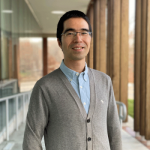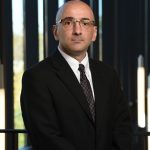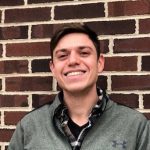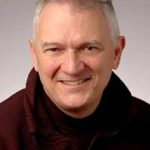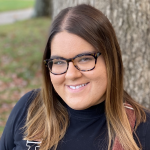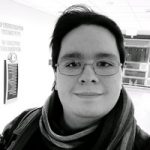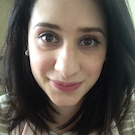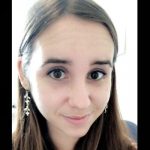| Affiliates|Faculty Affiliates |
Music |
 | Stefanie Acevedo | Music, School of Fine Arts
| Her main research interests include musical expectation, the analysis and cognition of musical form, cognitive underpinnings for musical categorization and segmentation, and music theory pedagogy. Her work encompasses the analysis and cognition of common-practice, avant-garde, popular, and non-Western musics. |
| Affiliates|Faculty Affiliates |
Psychological Sciences |
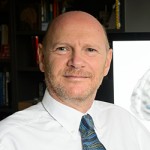 | Gerry Altmann | Psychological Sciences, College of Liberal Arts and Sciences
| Adult language processing; Influence of context on sentence comprehension; Event comprehension; Interface between language and vision. |
| Affiliates|Faculty Affiliates |
Neuroscience |
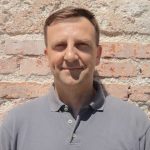 | Srdjan Antic | Neuroscience, UConn Health
| Research in our laboratory is centered on understanding the cellular and molecular mechanisms of synaptic integration, neuronal excitability and plasticity, development of human neurons and how dopamine modulates these fundamental processes. Our experimental methods include optogenetics, electrophysiology, fast functional imaging using calcium-sensitive indicators or voltage-sensitive indicators, computer simulations (NEURON), neuron tracing and immunolabeling. |
| Affiliates|Faculty Affiliates |
Psychological Sciences |
 | Robert Astur | Psychological Sciences, College of Liberal Arts and Sciences
| My interests reply on using behavioral neuroscience theory and methodology in human populations to help elucidate the neural bases of memory function. Currently, we are conducting studies examining how nicotine affects how people learn things and extinguish memories. We also are looking at how estrogen affects hippocampal sensitive memory in women. And, lastly, we are examining fear conditioning in humans in virtual reality environments in hopes of helping design effective strategies for treating anxiety. |
| Affiliates|Faculty Affiliates |
Neuroscience |
 | Byoung Il Bae | Neuroscience, UConn Health
| We study molecular and cellular mechanisms of cerebral cortical development using genetically engineered ferret and mouse models of human brain disorders. We are particularly interested in understanding how mutations in evolutionarily conserved, ubiquitously expressed genes cause species-, tissue-, and cell type-specific disease phenotypes. We are also interested in the neurodevelopmental basis of mammalian social behavior and autism spectrum disorder. |
| Affiliates|Faculty Affiliates |
|
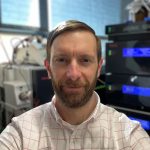 | Jeremy Balsbaugh | Center for Open Research Resources & Equipment, Office of the Vice President for Research
| My expertise lies in applications of ultra-high performance liquid chromatography coupled to high resolution tandem mass spectrometry for the identification and quantification of proteins, peptides, and small molecule metabolites in complex biological systems to uncover the mechanisms that underlie disease. |
| Affiliates|Faculty Affiliates |
Statistics |
 | Haim Bar | Statistics, College of Liberal Arts and Sciences
| I am an applied statistician, and my research interests include statistical modeling for high throughput data, variable selection, Bayesian and empirical Bayes methods, gene network analysis, and statistical methods in machine learning. I have collaborated with researchers from diverse fields such as genetics, nutrition, economics, and microbiology. |
| Affiliates|Faculty Affiliates |
Philosophy |
 | Dorit Bar-On | Philosophy, College of Liberal Arts and Sciences
| Philosophy (Mind, Language, Epistemology, Metaethics); Linguistics (Semantics & Pragmatics, Evolution of Language, Animal Communication; Cognitive Science & Psychology (Theory of Mind, Failures of Self-Knowledge, Perception, Action, Rationality, Inner Speech, Emotions, Self-Deception) |
| Affiliates|Faculty Affiliates |
Communication |
 | Saraswathi Bellur | Communication, College of Liberal Arts and Sciences
| Dr. Bellur’s research explores the psychological and physiological effects of interactive media on key communication outcomes. Her research has focused on explication and measurement issues related to interactivity, cognitive heuristics and user engagement. Dr. Bellur looks forward to pursuing interdisciplinary projects on communication technologies and their effects. |
| Faculty Affiliates |
Psychological Sciences |
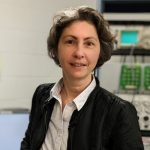 | Yulia Bereshpolova | Psychological Sciences, College of Liberal Arts and Sciences
| |
| Affiliates|Faculty Affiliates |
Human Development and Family Sciences |
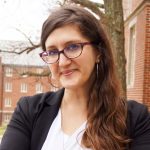 | Alaina Brenick | Human Development and Family Sciences, College of Liberal Arts and Sciences
| Dr. Brenick's research focuses on how children, adolescents, and adults experiences, make sense of, reason about, and respond to bias-based victimization. From a social justice perspective, she examines individual and group social and moral reasoning regarding interpersonal and systemic oppression and inequities. Furthermore, she designs and evaluates programmatic prevention and intervention measures to reduce intergroup conflict, discrimination, and inequity. |
| Affiliates|Faculty Affiliates |
Human Development and Family Sciences |
 | Preston Britner | Human Development and Family Sciences, College of Liberal Arts and Sciences
| My research interests include the study of child-parent relationships and the application of family science research to applied settings. As an attempt to bridge family science and neuroscience research, I am interested in exploring neurobiological substrates of interpersonal relationships from an affective neuroscience perspective using neuroimaging modality. |
| Affiliates|Faculty Affiliates |
Neuroscience |
 | Alice Burghard | Neuroscience, UConn Health
| My research covers the physiology and pathophysiology of the central auditory system with a special focus on the circuitry of the inferior colliculus, a major hub in auditory subcortical processing. I am especially interested how changes in this circuit contribute to tinnitus and other central auditory processing disorders. Methodologies include electrophysiology and behavioral assessments in animal models with and without tinnitus. |
| Faculty Affiliates |
Speech Language and Hearing Sciences |
 | Lindsay Butler | Speech Language and Hearing Sciences, College of Liberal Arts and Sciences
| Dr. Butler’s research interests include cognitive neuroscience of language, brain imaging with functional near-infrared spectroscopy and communication in minimally verbal autistic youth. |
| Affiliates|Faculty Affiliates |
Nursing |
 | Sharon Casavant | Nursing, School of Nursing
| My research interests focus on the effects of repeated painful/stressful procedures in preterm infants within the Neonatal Intensive Care Unit (NICU). Research has demonstrated that those experiences alter DNA methylation, gene expression and possibly telomere length. Our research question is whether there are associations between those epigenetic changes and infant neurodevelopment. |
| Affiliates|Faculty Affiliates |
Sociology |
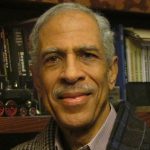 | Noel Cazenave | Sociology, College of Liberal Arts and Sciences
| I am interested in the social impact of awakening experiences, altered states of consciousness, and what appears to an emerging "psychedelic revolution" with a particular focus on what they bring to our understanding of human nature and possibilities. |
| Affiliates|Faculty Affiliates |
Psychological Sciences |
 | Chi-Ming Chen | Psychological Sciences, College of Liberal Arts and Sciences
| My lab is interested in translating neurophysiological knowledge into interventions for neurological and psychiatric disorders. We are interested in conducting research that will aid in developing and translating advanced neurophysiological knowledge into novel treatments for medication-resistant schizophrenia. Specifically, we hope to test interventions and new chemical compounds to ameliorate pathological neural oscillations in schizophrenia. |
| Affiliates|Faculty Affiliates |
Statistics |
 | Ming-Hui Chen | Statistics, College of Liberal Arts and Sciences
| My research interests include Big Data, Bayesian Statistical Methodology, Bayesian Computation, Bayesian Phylogenetics, Categorical Data Analysis, Design of Bayesian Clinical Trials, DNA Microarray Data Analysis, Meta-analysis, Missing Data Analysis (EM, MCEM, and Bayesian), Monte Carlo Methodology, Statistical Methodology and Analysis for Prostate Cancer Data, Statistical Modeling, Survival Data Analysis, and Variable Selection. |
| Affiliates|Faculty Affiliates |
Chemical and Biomolecular Engineering |
 | Yongku Cho | Chemical and Biomolecular Engineering, College of Engineering
| My research group develops engineered proteins to detect and control biological processes. We are currently focusing on engineering antibodies specific to protein post-translational modifications that can be used as biomarkers of neurodegeneration. |
| Affiliates|Faculty Affiliates |
Psychological Sciences |
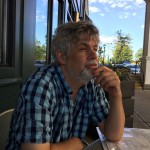 | James Chrobak | Psychological Sciences, College of Liberal Arts and Sciences
| My research focuses on the physiology and function of hippocampal circuits with particular emphasis on neural network dynamics (e.g., theta and gamma oscillations) which support the transient formation and synchronization of neuronal ensembles across brain structures. Studies in my laboratory typically involve anatomical analyses, neurophysiological recordings of awake-behaving rodents and assessment of "episodic" (delayed conditional discrimination) memory performance. |
| Affiliates|Faculty Affiliates |
Speech Language and Hearing Sciences |
 | Carl Coelho | Speech, Language, and Hearing Sciences, College of Liberal Arts and Sciences
| A main focus of my research is to gain a better understanding of how diffuse and focal brain damage disrupts language processes such as discourse. Studying language at the level of discourse permits the examination of both linguistic and cognitive influences and how these components are integrated for successful social interactions. |
| Faculty Affiliates |
Neurosurgery |
 | Christopher Conner | Neurosurgery, UConn Health
| Human electrophysiology. I perform and study deep brain stimulation (DBS), vagal nerve stimulation (VNS), and peripheral nerve stimulation for the treatment of neurosurgical diseases. |
| Affiliates|Faculty Affiliates |
Physiology and Neurobiology |
 | Joanne Conover | Physiology and Neurobiology, College of Liberal Arts and Sciences
| The overarching goal of my research program is to understand properties of the brain's stem cell niches, their potential for stem cell-mediated reparative functions, and the use and application of these findings to model and understand human disease. Currently, we combine 3D modeling of brain structures with detailed tissue histochemistry to generate longitudinal maps of gross structural changes at the cellular level. Projects include both animal models and human MR data and tissue, and focus on: (1) injury (concussion, traumatic brain injury), disease (fetal hydrocephalus, Alzheimer’s disease, chronic traumatic encephalopathy) and aging. |
| Affiliates|Faculty Affiliates |
Linguistics|Psychological Sciences |
 | Marie Coppola | Psychological Sciences and Linguistics, College of Liberal Arts and Sciences
| My research program centers on how language emerges within individuals and communities, as well as how atypical language experiences affect cognitive development. I study a new Deaf community sign language that emerged in Nicaragua in the 1970s and homesigners (deaf individuals who have not had the opportunity to acquire a conventional language). My latest project investigates the impact of language experience on the development of number concepts in deaf and hard of hearing children in the US. |
| Affiliates|Faculty Affiliates |
Genetics and Genome Sciences |
 | Justin Cotney | Genetics and Genome Sciences, UConn Health
| My lab is interested in understanding the role of non-coding regulatory sequences in controlling embryonic development. We are particularly interested in identifying sequences that when either mutated or inappropriately activated lead to developmental abnormalities such as cleft lip and/or palate as well as neurodevelopmental disorders. |
| Affiliates|Faculty Affiliates |
Neuroscience |
 | Stephen Crocker | Neuroscience, UConn Health
| The Crocker lab has been studying the roles of non-myelinating glia (astrocytes and microglia) in demyelinating diseases of the central nervous system. Specific projects include study on neural progenitor cells derived from patient-specific induced pluripotent stem cells from multiple sclerosis patients, the role of microglia in globoid cell leukodystrophy and the influence of exosome signaling on astrocyte biology and autoimmunity. |
| Affiliates|Faculty Affiliates |
Psychological Sciences |
 | Kimberly Cuevas | Psychological Sciences, College of Liberal Arts and Sciences
| My laboratory examines the ontogeny of basic and higher-order cognitive skills during infancy and early childhood. Our work combines neuroscience and biopsychosocial perspectives, emphasizing connections between animal and human literature. Our primary research interests fall into three main themes: experimental investigation of early learning and memory; longitudinal and individual difference analysis of emerging executive functions; and neuroscience foundations of socio-cognitive development. |
| Faculty Affiliates |
Physiology and Neurobiology |
 | Angel de Blas | Physiology and Neurobiology, College of Liberal Arts and Sciences
| |
| Affiliates|Faculty Affiliates |
Statistics |
 | Dipak Dey | Statistics, College of Liberal Arts and Sciences
| My research interests are Bayesian Analysis, Bioinformatics, Biostatistics, Computational Statistics, Medical Image Processing, Statistical Shape Analysis, and Statistical Genetics. My current research is on Harnessing Big Data through Statistical Modeling. |
| Affiliates|Faculty Affiliates |
Psychological Sciences |
 | James Dixon | Psychological Sciences, College of Liberal Arts and Sciences
| My colleagues and I work on fundamental issues in perception, action, and cognition. The overarching goal of our research program is to understand behavior as a natural extension of self-organizing systems. A foundational premise of our work is that all biological systems run on multi-scale, nested architectures that are intrinsically non-decomposable. |
| Affiliates|Faculty Affiliates |
Electrical and Computer Engineering |
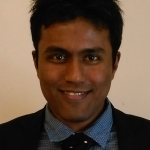 | Abhishek Dutta | Electrical and Computer Engineering, College of Engineering
| My research interest lies in solving practical problems in large scale mechatronic and biological systems by developing mathematical analysis based on stochastic and robust optimization, constrained control and machine learning. |
| Affiliates|Faculty Affiliates |
Mathematics |
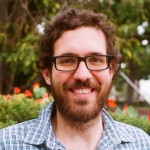 | Damir Dzhafarov | Mathematics, College of Liberal Arts and Sciences
| My research is in computability theory and reverse mathematics, which are subfields of mathematical logic. Among the general questions I am interested in are how mathematicians prove the theorems they prove, what the limits are to what can be proved, and to what degree proofs can be generated algorithmically. More specifically, I try to variously describe the complexity of theorems and proof techniques (which may be regarded as methods of reasoning) from different parts of mathematics, and areas outside of mathematics like cognitive science, and look for connections between them. |
| Administration|Affiliates|Executive Steering Committee|Faculty Affiliates |
Psychological Sciences |
 | Inge-Marie Eigsti | Psychological Sciences, College of Liberal Arts and Sciences
| My research addresses a fundamental issue in human cognition: how constraints imposed by brain development and core neurocognitive processes impact language acquisition. As a scientist, I am intrigued by the interaction of language acquisition and brain development. As a clinician, I am motivated to understand the puzzles presented by atypical development, particularly autism spectrum disorder (ASD) and its consequences, because of what they mean for intervention. We use multiple converging approaches in my lab: experimental behavioral tasks, structural and functional imaging, and eyetracking, in our research. |
| Affiliates|Faculty Affiliates |
Neuroscience |
 | Betty Eipper | Neuroscience, UConn Health
| I am interested in the synthesis, storage and secretion of neuropeptides. In addition to studying the enzymes unique to neuropeptide synthesis, I study the formation and exocytosis of the secretory granules that store these neuropeptides. We use primary neuronal cultures, neuroendocrine cell lines and genetically engineered mice to study this process. |
| Affiliates|Faculty Affiliates |
Biomedical Engineering|Electrical and Computer Engineering |
 | Monty Escabi | Electrical and Computer Engineering and Biomedical Engineering, College of Engineering
| Humans can easily recognize a familiar voice, identify a musical tune, or segregate a single speaker in a crowded room. Yet these seemingly simple tasks present major challenges to our most sophisticated computers. I study the central auditory system in mammals to understand how the brain encodes and recognizes natural sounds including speech. Our lab employs neural recordings in the auditory midbrain and cortex and neural models to understand the neural basis for sound recognition. |
| Faculty Affiliates |
Psychiatry |
 | Sarah Feldstein Ewing | Psychiatry, UConn Health
| Translational (integrated brain imaging with behavioral interventions) for human adolescents to improve outcomes in addiction and other health risk behavior. |
| Affiliates|Executive Steering Committee|Faculty Affiliates |
Psychological Sciences |
 | Holly Fitch | Psychological Sciences, College of Liberal Arts and Sciences
| Rodent models of developmental disability and neonatal brain injury and developmental disability; Modulating effects of hormones and experience; Neuroprotection |
| Affiliates|Faculty Affiliates |
Materials Science and Engineering |
 | Pu-Xian Gao | Materials Science and Engineering, College of Engineering
| Materials Science and Nanotechnology for Energy, Environmental, and Biomedical Applications; Sensors; Catalysis; Brain-machine Interface; In-situ/Operando Characterization |
| Affiliates|Faculty Affiliates |
Speech Language and Hearing Sciences |
 | Adrian Garcia-Sierra | Speech, Language, and Hearing Sciences, College of Liberal Arts and Sciences
| "Over the past 10 years my research has focused on the influence of language on the perception of speech sounds from infancy through young adulthood, investigating cross-cultural speech perception in native speakers of Spanish and English and cross-language speech perception in bilingual individuals. My primary research method is electrophysiology. However, I also employ behavioral and naturalistic paradigms and describe the results of my research across the lifespan from perceptual development. " |
| Affiliates|Faculty Affiliates |
Psychological Sciences |
 | Alexandra Garr-Schultz | Psychological Sciences, College of Liberal Arts and Sciences
| Dr. Garr-Schultz’s research explores the ways in which our identities and understanding of ourselves shapes the ways we navigate the world, with an emphasis on social dynamics affecting individuals from underrepresented or marginalized groups. Ultimately, the goal of this work is to identify ways to increase diversity, equity, inclusion and justice and to reduce social inequalities across contexts |
| Affiliates|Faculty Affiliates |
Genetics and Genome Sciences |
 | Noelle Germain | Genetics and Genome Sciences, UConn Health
| My research uses human induced pluripotent stem cells (iPSCs) to model and investigate the genetic and molecular mechanisms of neurodevelopmental disorders. Our overarching goal is to use these in vitro neuronal models to help in the identification of novel therapeutic targets and the testing of candidate drugs in disease-relevant human cell types. |
| Affiliates|Faculty Affiliates |
Biomedical Engineering |
 | Krystyna Gielo-Perczak | Biomedical Engineering, College of Engineering
| "As a biomedical engineer, I'm involved in design of biomedical devices and interested in multidisciplinary approach to human centered design, rehabilitation, human-robot and exoskeleton interactions for the purpose of augmenting human capabilities, assisting disabled persons, increasing human performance and safety. The methodology brings many disciplines in its study of humans and their environments, including biomechanics, neuroscience, systems view, physiology and psychology. " |
| Affiliates|Faculty Affiliates |
Music |
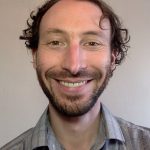 | Daniel Goldberg | Music, School of Fine Arts
| I study culture, cognition, and performance of musical meter and rhythm, using methods including timing measurements, experiments, interviews, and participant observation. My recent work focuses on meters with unequal durations in Bulgarian folk music and dance. |
| Affiliates|Executive Steering Committee|Faculty Affiliates |
Philosophy |
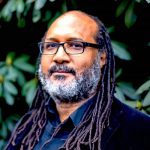 | Lewis Gordon | Philosophy, College of Liberal Arts and Sciences
| My research interests include Africana Philosophy, Existentialism, Phenomenology, Philosophy of Science, Social and Political Philosophy, Philosophy of Education, Aesthetics and Philosophy in Film, Literature, and Music, Philosophy of Culture, Race, and Racism, Philosophy of Medicine, Psychiatry, and Psychoanalysis, and Global Southern Thought. |
| Affiliates|Faculty Affiliates |
Psychological Sciences |
 | Amy Gorin | Psychological Sciences, College of Liberal Arts and Sciences
| Weight loss and maintenance, health behavior change. |
| Affiliates|Faculty Affiliates |
Psychological Sciences |
 | Sarah Gray | Psychological Sciences, College of Liberal Arts and Sciences
| Dr. Gray is a licensed clinical psychologist whose research examines the developmental consequences of trauma and early life adversity, with a specific focus on intergenerational processes. She takes a multilevel approach, integrating narrative, behavioral, and physiological measurement to understand how risk and resilience is transmitted across generations through behavioral and biological pathways, situated in relational and broader social contexts. |
| Affiliates|Faculty Affiliates |
Philosophy |
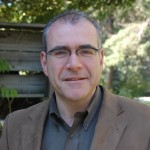 | Mitchell Green | Philosophy, College of Liberal Arts and Sciences
| My work is primarily in the pragmatics of communication, focusing on the mechanisms by which speakers mean more (or sometimes less) than what they say. As such I have done work on implicature, speech act theory, presupposition, the kinematics of conversation, and expressive behavior. I also have interests in empathy, the evolution of communication, and the epistemic value of literature. |
| Affiliates|Faculty Affiliates |
Speech Language and Hearing Sciences |
 | Bernard Grela | Speech, Language, and Hearing Sciences, College of Liberal Arts and Sciences
| My research interests include examining processing based deficits in children with language impairments. These consist of assessing production errors associated with increasing linguistic complexity in children with specific language impairment and Down syndrome, and communicative deficits associated with ASD. I also look at language deficits and reading disorders in both children and adults. |
| Faculty Affiliates |
Neuroscience |
 | Andres Grosmark | Neuroscience, UConn Health
| My lab combines two-photon imaging, electrophysiology, genetic targeting and closed-loop optogenetic manipulations together with advanced behavioral paradigms to dissect the initial formation and subsequent evolution of long-term hippocampal memories. |
| Affiliates|Faculty Affiliates |
Statistics |
 | Xingche Guo | Statistics, College of Liberal Arts and Sciences
| My research interests include reinforcement learning for characterizing human reward-based behavior, statistical and machine learning for neuroimaging data such as fMRI and EEG, functional data analysis, variable selection, and Bayesian analysis. |
| Affiliates|Faculty Affiliates |
Human Development and Family Sciences |
 | Linda Halgunseth | Human Development and Family Sciences, College of Liberal Arts and Sciences
| My first and primary research interest is to examine sociocultural influences on parenting, parent-child relationships, and child development. My second research interest is to develop culturally grounded self-report parenting measures. My third area of research is translational in that it identifies evidence-based practices for engaging culturally, ethnically, linguistically, and socio-economically diverse families in educational settings. |
| Affiliates|Faculty Affiliates |
Kinesiology |
 | Steven Harrison | Kinesiology, College of Agriculture, Health and Natural Resources
| My research examines both the basic and applied science of human perception and action. My research on human perception focuses on the role of haptic perception in human tool use and navigation. My research on human action examines human abilities to person rhythmic coordinated movements and to control the postures of their body. |
| Affiliates|Faculty Affiliates |
Psychological Sciences |
 | Fumiko Hoeft | Psychological Sciences, College of Liberal Arts and Sciences
| I have theoretical interests in the neurobiological mechanisms underlying individual differences in brain maturational processes, acquisition of skills such as literacy and how they interact. |
| Affiliates|Faculty Affiliates |
English |
 | Patrick Hogan | English, College of Liberal Arts and Sciences
| I work principally at the intersection of cognitive science and literary study, examining such topics as the nature of aesthetic response, the operation of simulation in authors and readers, the ways in which literary study can advance our understanding of emotion, the political psychology of social identity (e.g., national identity) as it relates to narrative structure, and the existence and variety of narrative universals. |
| Affiliates|Faculty Affiliates |
Neuroscience |
 | Xiangyou Hu | Neuroscience, UConn Health
| My lab focuses on Alzheimer's research. We use Bace1 conditional knockout mice and AD mice models to investigate BACE1 physiological functions and the roles of BACE1 in the pathogenesis of Alzheimer’s disease. |
| Affiliates|Executive Steering Committee|Faculty Affiliates |
Physiology and Neurobiology |
 | Alexander Jackson | Physiology & Neurobiology, College of Liberal Arts and Sciences
| Research in the laboratory is focused on the cellular and synaptic neurophysiology of neural circuits in the mammalian hypothalamus that regulate fundamental behavioral states such as sleep, arousal and feeding. Techniques are centered on using patch-clamp electrophysiology and pharmacology in brain slices in order to elucidate the cellular and synaptic properties of specific hypothalamic cell-types and their local and long-range synaptic connectivity. This approach is carried out in concert with a toolbox of neuroanatomical methods, optogenetic strategies to manipulate the excitability of genetically targeted neurons and through collaborative work, single-cell transcriptional profiling. |
| Affiliates|Faculty Affiliates |
Psychological Sciences |
 | Arielle Keller | Psychological Sciences, College of Liberal Arts and Sciences
| My interdisciplinary research program investigates how the human brain focuses attention on goal-relevant information amid constant distractions, with applications in understanding mental health and neurodevelopment. We leverage multimodal human neuroimaging techniques (e.g. EEG and fMRI), novel behavioral assessments, and computational models across both large-scale datasets and deeply phenotyped samples. |
| Affiliates|Faculty Affiliates |
Neurosurgery |
 | Brian Kelley | Neurosurgery, UConn Health
| I study mechanisms of diffuse axonal injury (DAI) in a pre-clinical model of diffuse brain injury (DBI). Translational research efforts focus on understanding DBI-mediated axonal injury pathobiology and related neuroinflammatory responses as well as therapeutic strategies designed to mitigate secondary mechanisms of brain injury. |
| Affiliates|Faculty Affiliates |
Pharmaceutical Sciences |
 | Debra Kendall | Pharmaceutical Sciences, UConn School of Pharmacy
| My research goal is to understand the structure and function of the cannabinoid receptor family (CB1 and CB2). CB1 is highly expressed in the CNS while CB2 is more common in peripheral tissues. My recent work includes examining the allosteric modulation of CB1 and my laboratory has identified examples of allosteric ligand biased signaling via G protein independent pathways. |
| Affiliates|Faculty Affiliates |
Psychological Sciences |
 | Ji Chul Kim | Psychological Sciences, College of Liberal Arts and Sciences
| I study the perceptual organization of musical structures by building computational models of music cognition and auditory neural processing. I am interested in the organizational principles of pitch and rhythmic structures, such as tonality and meter, and seek to explain them as dynamic pattern formation in neural systems embedded in musical environments. |
| Affiliates|Faculty Affiliates |
Kinesiology |
 | Jeffrey Kinsella-Shaw | Kinesiology, College of Agriculture, Health and Natural Resources
| My research interests include applications of non-linear dynamical methods to motor control; rehabilitation science and regenerative medicine, neurological rehabilitation assessments and interventions (e.g. TMS, exercise prescription, etc.) for patients surviving stroke or TBI, or with diagnoses of progressive neurological disorders e.g. multiple sclerosis or affective disorders, e.g. Major Depressive Disorder |
| Affiliates|Executive Steering Committee|Faculty Affiliates |
Nursing |
 | Steve Kinsey | Nursing, UConn School of Nursing
| I am a biomedical researcher with specialized training in behavioral neuroscience, immunology, and pharmacology. My students and I research the effects of stress and drugs on pain, inflammation, and emotion. My goal is to apply pain and drug dependence research approaches to find new opioid-sparing pain treatments. |
| Affiliates|Faculty Affiliates |
Brain Imaging Research Core (BIRC) |
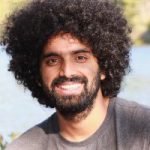 | Nabin Koirala | Brain Imaging Research Core (BIRC)
| My interest is in understanding network level neural perturbation in different Neurodevelopmental, Neurological and Neuropsychological disorders and develop disease specific brain biomarkers. I am currently working on exploring the neural correlates of speech, hearing and language related disorders with the use of multi-modal brain imaging and electrophysiological data and utilizing the state-of the-art frameworks of complex network algorithm. |
| Affiliates|Faculty Affiliates |
Statistics |
 | Lynn Kuo | Statistics, College of Liberal Arts and Sciences
| Biostatistics and Bioinformatics: specifically, survival analysis, longitudinal data analysis, multivariate analysis, functional data analysis, multilevel modeling, meta-analysis, experimental design, computational biology, Bayesian phylogenetics, analysis of omic (genomic, proteomic, and next generation sequence) data which includes visualization of data, statistical learning, dimension reduction, marker detection, test validation, multiple hypothesis testing, and prediction. |
| Affiliates|Faculty Affiliates |
Pediatrics |
 | Shabnam Lainwala | Pediatrics, UConn School of Medicine
| I am most interested in early nutrition of a preterm infant and long term health outcomes of prematurely born children. I am the director of the Regional Neonatal Neurodevelopmental Follow-Up Program at CT Children’s Medical Center. Currently, in collaboration with professors at UCONN health center, I am principal investigator (PI) or co- investigator on multiple projects that are directly aligned with my core interests of long term neurodevelopmental outcomes. |
| Affiliates|Faculty Affiliates |
Psychological Sciences |
 | Nicole Landi | Psychological Sciences, College of Liberal Arts and Sciences
| My research focuses on a language and reading development in typically developing children and adolescents, and in children with complex neurodevelopmental disorders, including dyslexia, SLI and autism. In my work I use multiple methodologies including fMRI, sMRI, EEG, ERP eyetracking & genetic analyses to explore the underlying etiology of typical and atypical language and reading processes. |
| Affiliates|Faculty Affiliates |
Psychological Sciences |
 | Ed Large | Psychological Sciences, College of Liberal Arts and Sciences
| My research areas include nonlinear dynamical systems, auditory neuroscience, and music psychology. I use theoretical modeling in conjunction with behavioral, comparative, neurophysiological and neuroimaging techniques to understand how people respond to complex, temporally structured sequences of sound such as music and speech. |
| Affiliates|Executive Steering Committee|Faculty Affiliates |
Neuroscience |
 | Eric Levine | Neuroscience, UConn Health
| My laboratory studies synaptic modulation in the hippocampus and cortex of the mammalian brain, focusing on the roles of endogenous cannabinoids and nerve growth factors in various forms of synaptic plasticity that are important for learning and memory. We are also using patient-specific induced pluripotent stem cells (iPSC) lines to study the pathophysiology of autism and related neurodevelopmental disorders. |
| Faculty Affiliates |
Statistics |
 | Wenrui Li | Statistics, College of Liberal Arts and Sciences
| My research interests include statistics for network data, causal inference under interference, high-dimensional data analysis (e.g., -omics data and neuroimaging data), and statistical methods for infectious disease transmission and surveillance. |
| Affiliates|Faculty Affiliates |
Genetics and Genome Sciences |
 | Yuanhao James Li | Genetics and Genome Sciences, UConn Health
| The long-term goal of my research program is to understand the developmental biology of the central nervous system, particularly the cerebellum. I have established and maintained a long-standing research program studying how interplays between intrinsic and extrinsic factors control cell fate specification and cell differentiation. While we use mouse genetics as the primary research approach, our studies are augmented by complementary studies in chick, embryonic stem cells, and transcriptomics. |
| Affiliates|Executive Steering Committee|Faculty Affiliates |
Linguistics |
 | Diane Lillo-Martin | Linguistics, College of Liberal Arts and Sciences
| My research investigates the nature of language and its acquisition by studying American Sign Language (ASL), the acquisition of ASL by Deaf children, bimodal bilingual acquisition of ASL and spoken English by hearing children in Deaf-parented families, and the acquisition of English by hearing children. I am especially interested in how the study of sign languages can contribute to broadening understanding of what is universal and what is modality-specific. |
| Affiliates|Faculty Affiliates |
Human Development and Family Sciences |
 | Caitlin Lombardi | Human Development & Family Sciences, College of Liberal Arts and Sciences
| My research examines the roles of family, early child care, school and community for promoting children’s cognitive and social-emotional development, particularly in the context of economic and social disadvantages. One focus of this work is on the development of mathematics and spatial skills over childhood, seeking to understand the role of individual characteristics and environmental influences in order to identify opportunities for intervention |
| Affiliates|Faculty Affiliates |
Philosophy |
 | Michael Lynch | Philosophy, College of Liberal Arts and Sciences
| Representation, truth, consciousness, understanding and science communication |
| Affiliates|Faculty Affiliates |
Neuroscience |
 | Xin-Ming Ma | Neuroscience, UConn Health
| My research interest is to understand the molecular mechanisms of dendritic spine formation and the dendritic spine pathology underlying psychiatric disorders including depression and schizophrenia. We use primary neuronal cultures, human induced pluripotent stem cell (iPSC)-derived neurons from schizophrenic patients and animal models of depression to study the mechanisms. |
| Faculty Affiliates |
Communication |
 | Zexin Ma | Communication, College of Liberal Arts and Sciences
| Dr. Ma conducts research at the intersection of health communication, persuasion, and media psychology. She is particularly interested in understanding the psychological processing and persuasive effects of health narratives. |
| Affiliates|Faculty Affiliates |
Speech Language and Hearing Sciences |
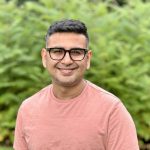 | Akshay Maggu | Speech, Language and Hearing Sciences, College of Liberal Arts and Sciences
| My research is aimed at understanding the intersectional effects of auditory, cognitive, and linguistic processing on speech and language perception and learning in the brain. Using behavioral, electrophysiological, and training-based techniques, my research employs paradigms that are geared toward the understanding of both typical and impaired perceptual systems. |
| Affiliates|Faculty Affiliates |
Psychological Sciences |
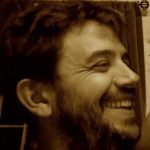 | James Magnuson | Psychological Sciences, College of Liberal Arts and Sciences
| Neurobiology and psychology of language, processing, development, and disorders of spoken and written language; Computational models as theory-building tools; Developing comprehensive understanding of language and learning over the lifespan from cognitive, neural and genetic perspectives through interdisciplinary collaborations; Science communication |
| Affiliates|Faculty Affiliates |
Psychiatry |
 | Kevin Manning | Psychiatry, UConn Health
| My work focuses on the neurobiology and clinical expression of late-life depression syndromes. To date, my research has focused on the identification of executive dysfunction and neuroticism as behavioral predictors of poor antidepressant treatment response and cognitive decline in late-life depression. My colleagues and I are currently working on understanding whether novel treatments (e.g., computerized cognitive training) improve depression in older adults. |
| Affiliates|Faculty Affiliates |
Psychological Sciences |
 | Etan Markus | Psychological Sciences, College of Liberal Arts and Sciences
| Memory formation, hippocampal processing, rats, electrophysiology and neurobiology of aging |
| Affiliates|Faculty Affiliates |
Neuroscience |
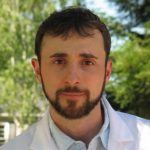 | David Martinelli | Neuroscience, UConn Health
| My research focus is on synaptic adhesion proteins, which bind two neurons together at a synapse and are at the junction of our genes and experiences. My goal is to understand the molecular logic of how these proteins orchestrate synaptic formation, modification, and function, and to ultimately provide an explanation for how these events influence behaviors. |
| Affiliates|Faculty Affiliates |
Physiology and Neurobiology |
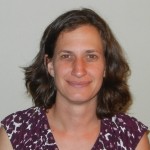 | Karen Menuz | Physiology & Neurobiology, College of Liberal Arts and Sciences
| My lab studies the mechanisms supporting robust responses to odors in the insect olfactory system. Currently, we are interested in how the molecular and cellular environment surrounding olfactory neurons influences their activity, and ultimately odor-driven behaviors. We take advantage of the tremendous number of genetic tools available in the fruit fly Drosophila in order to identify conserved molecules and mechanisms that likely have a similar role in insect vectors of human disease. |
| Affiliates|Faculty Affiliates |
Genetics and Genome Sciences |
 | William Mohler | Genetics and Genome Sciences, UConn Health
| Focusing on the model organism Caenorhabditis elegans, I use advanced imaging/analysis techniques to understand the origins of order within a developing brain. My current work correlates anatomical intermediates and final structure of the nervous system with published work on molecular and physiological relationships among specific sets of neurons and muscles. Moreover, my family history and genetics give me unique real-life experience in behavioral health and autism-spectrum disorders. |
| Affiliates|Executive Steering Committee|Faculty Affiliates |
Speech Language and Hearing Sciences |
 | Jennifer Mozeiko | Speech Language and Hearing Sciences, College of Liberal Arts and Sciences
| Research in the Aphasia Rehab Lab is focused on the optimization of aphasia rehabilitation. Specifically, we are looking at how clinicians can manipulate the neuroplastic response to treatment for the best possible language outcomes. Dosage, durability of treatment over time and generalization of gains to discourse production are predominant themes in much of our work. |
| Affiliates|Faculty Affiliates |
Physiology and Neurobiology |
 | Dan Mulkey | Physiology & Neurobiology, College of Liberal Arts and Sciences
| The focus of my research is centered on the electrophysiological characteristics of mammalian neurons in brainstem regions associated with respiratory control, specifically defining properties unique to respiratory chemoreceptors. I am also interested in the cellular mechanisms by which chemoreceptors sense changes in CO2/pH. |
| Administration|Affiliates|Executive Steering Committee|Faculty Affiliates |
Psychological Sciences|Speech Language and Hearing Sciences |
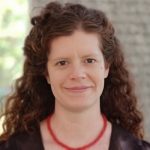 | Emily Myers | Speech, Language, and Hearing Sciences and Psychological Sciences, College of Liberal Arts and Sciences
| My research program focuses on the neural and behavioral mechanisms that enable listeners to map the speech signal onto meaning. In this program of study, I use neuroimaging techniques, principally fMRI, to investigate how the brain responds to acoustic variation within and between categories, and behavioral methods to probe the mechanisms that allow for parsing the speech stream into meaningful categories. These questions are applied to typical populations as well as to individuals with acquired language disorders (aphasia) or developmental language disorders (reading disorder, language impairment). |
| Affiliates|Faculty Affiliates |
Psychological Sciences |
 | Letitia Naigles | Psychological Sciences, College of Liberal Arts and Sciences
| My research interests target the roles of environment and biology in the question of how children acquire their first language. I investigate environmental effects via studies of typical children learning a wide range of languages (e.g., Chinese, Turkish, Spanish). I investigate biological effects via studies of children with a neurodevelopmental disorder called Autism Spectrum Disorder (ASD). I frequently rely on a method called Intermodal Preferential Looking (IPL), which reveals fine details of young children's language comprehension. I am beginning research to link up children's language processing and neural structure and function. |
| Affiliates|Faculty Affiliates |
Mechanical Engineering |
 | Thanh Duc Nguyen | Mechanical Engineering, UConn College of Engineering
| Nerve regeneration, nerve stimulation/engineering and neuronal mechanics. |
| Affiliates|Faculty Affiliates |
Physiology and Neurobiology |
 | Akiko Nishiyama | Physiology and Neurobiology, College of Liberal Arts and Sciences
| The role of glial cells (non-neuronal) in the neural network. |
| Affiliates|Faculty Affiliates |
Communication |
 | Anne Oeldorf-Hirsch | Communication, College of Liberal Arts and Sciences
| My research focuses on the use of digital technologies for communication, information sharing, and learning. Specific areas of research include how people engage with news content on social media, the role of online social networks in health, and the use of social media for science communication. |
| Affiliates|Faculty Affiliates |
Neuroscience |
 | Douglas Oliver | Neuroscience, UConn Health
| We study the neural circuits in the auditory system and the changes in the brain imposed by tinnitus and hearing loss. The CNS reacts to changes in the ear, and this leads to plastic changes in the central auditory system. Understanding these plastic changes is a key to providing new therapy. Recently, we have discovered neurons that fire for minutes after the offset of a long duration sound. This unusual form of plasticity may be related to tinnitus and the perception of a phantom sound. |
| Affiliates|Faculty Affiliates |
Physiology and Neurobiology |
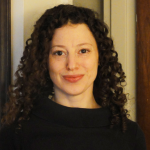 | Linnaea Ostroff | Physiology and Neurobiology, College of Liberal Arts and Sciences
| My research focuses on how changes in synapse structure and synaptic connectivity underlie emotional learning, particularly learning to differentiate safety from danger. Brain circuits converging on the amygdala mediate responses to threatening stimuli, and my work combines serial electron microscopy reconstruction with behavioral experiments, genetic markers, and immunohistochemistry to investigate the circuit and synaptic basis of learning in the amygdala |
| Affiliates|Faculty Affiliates |
Psychological Sciences |
 | Flora Oswald | Psychological Sciences, College of Liberal Arts and Sciences
| My research focuses on understanding how people with marginalized identities perceive and experience their social worlds. I use a wide variety of qualitative, quantitative, research synthesis, and vision-based approaches to address my research questions. |
| Affiliates|Faculty Affiliates |
Molecular and Cell Biology |
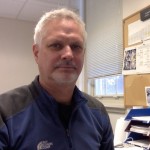 | Michael O’Neill | Molecular and Cell Biology, College of Liberal Arts and Sciences
| My lab is investigating the hypothesis that the well-recognized 4:1 male bias in Autism Spectrum Disorder may be due to parent-specific epigenetic signatures on the X chromosome. We were the first to identify parent-specific gene expression, a.k.a genomic imprinting on the X chromosome in mice, and have focused recent efforts on understanding the mechanism of imprinting of these genes, their function during neurodevelopment, and the potential for misregulation of the human orthologs of these genes |
| Affiliates|Faculty Affiliates |
Molecular and Cell Biology |
 | Rachel O’Neill | Molecular and Cell Biology, College of Liberal Arts and Sciences
| The development of genome-scale sequence data and novel next generation sequencing (NGS) applications has provided a foundation for studying biological processes in targeted species; in my lab, we capitalize on using NGS approaches and chromosomics to compare the genomes of different species and different genomes across human disease states, affording a greater understanding of genome evolution and the functional elements dispersed among coding and non-coding regions. |
| Affiliates|Faculty Affiliates |
Cell Biology |
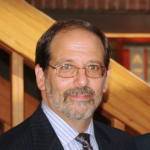 | Joel Pachter | Cell Biology, UConn Health
| The major focus of my lab is the role(s) of the CNS barriers, e.g., blood-brain barrier and blood-CSF barrier, in physiology and pathophysiology. As these barriers are fundamental to maintaining CNS homeostasis, even subtle disruptions in their function can lead to marked neurobiolological and cognitive changes. CNS barriers are also a main regulator of drug delivery, and so are major determinants in the efficacy and toxicity of drug action in the brain. |
| Affiliates|Executive Steering Committee|Faculty Affiliates |
Psychological Sciences |
 | Alexandra Paxton | Psychological Sciences, College of Liberal Arts and Sciences
| I take a data-rich approach to capture the many ways in which our language, movement, decisions, and emotions change during social contact in laboratory and real-world settings. Understanding how conversational goals, social connections, and physical spaces shape our emerging behaviors is a primary goal of my research, embedded within rich traditions of dynamical and ecological perspectives. Recently, I have also become interested in exploring social behaviors in non-human systems. |
| Affiliates|Executive Steering Committee|Faculty Affiliates |
|
 | Diane Quinn | Psychological Sciences, College of Liberal Arts and Sciencese
| Prof. Quinn focuses on the experiences of members of stigmatized groups, self-related cognitions, behavior, and affect. She has examined how identity related constructs determine psychological and health related outcomes for people with socially stigmatized identities. She has focused on issues related to mental illness, gender stereotypes, self-objectification, and the stigma of overweight. |
| Affiliates|Faculty Affiliates |
Psychological Sciences |
 | Nairán Ramírez-Esparza | Psychological Sciences
| My research uses natural language processing to examine how language reflects psychological processes, cultural values, and identity. I analyze large-scale text data using tools like LIWC and the Meaning Extraction Method to study bilingualism, emotion, and social connection across diverse populations, with a focus on language use in real-world contexts. |
| Affiliates|Faculty Affiliates |
Psychological Sciences |
 | Heather Read | Psychological Sciences, College of Liberal Arts and Sciences
| My research examines the neurobiology underlying the ability to discriminate and categorize vocalizations at the single neuron, neural circuit and behavioral levels. In addition to developing comprehensive theories for how biological systems discriminate social communications, we aim to develop new strategies for speech recognition, prosthetic hearing devices and diagnosis of central auditory processing disorders |
| Affiliates|Faculty Affiliates |
Physiology and Neurobiology |
 | Scott Rich | Physiology and Neurobiology, College of Liberal Arts and Sciences
| My lab uses a wealth of computational tools in research focused on improving our understanding of how experimentally characterized sources of heterogeneity and diversity in the brain contribute to physiologically relevant brain function and, conversely, how observed disruptions to this variability might promote a range of neuropathologies. |
| Affiliates|Faculty Affiliates |
Human Development and Family Sciences |
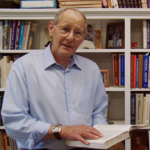 | Ronald Rohner | Human Development & Family Sciences, College of Liberal Arts and Sciences
| As author of interpersonal acceptance-rejection theory, my research for past six decades focused on the effects, causes, and correlates of interpersonal acceptance-rejection. Included in this this work is an interest in the neurobiological and genetic substrates underlying universal response-tendencies to the experience of interpersonal rejection by significant others. In particular, I am interested in the neural correlates of adults’ remembrances of parental acceptance-rejection in childhood. |
| Affiliates|Faculty Affiliates |
Philosophy |
 | Marcus Rossberg | Philosophy, College of Liberal Arts and Sciences
| My research focuses mainly on logic and the philosophies of mathematics and language. Proof-theoric inferentialist approaches to logic and higher-order logic, in particular, are a focus of my work. |
| Affiliates|Faculty Affiliates |
Psychological Sciences |
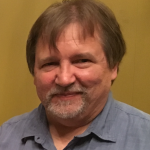 | Jay Rueckl | Psychological Sciences, College of Liberal Arts and Sciences
| I use behavioral methods, neuroimaging, and computational modeling to study reading and reading acquisition. I study individual differences within and across language populations and typical and atypical development to understand how the organization of the reading system is shaped by the properties of the writing system. I am also interested in the role of domain-general learning and memory mechanisms (e.g. declarative and procedural memory, statistical learning) in reading acquisition. |
| Affiliates|Faculty Affiliates |
Human Development and Family Sciences |
 | Beth Russell | Human Development and Family Sciences, College of Liberal Arts and Sciences
| I study the development of self-control from birth through early adulthood. Many of my research experiences with infancy and early childhood samples demonstrates that the executive function skills used to regulate parent-infant interactions are teachable, and that improving parent self-regulation is a skill set that serves to support positive parent-child interactions throughout childhood. Given the importance of self control for group learning contexts and its significant enduring associations with adaptive outcomes into adulthood, elaborating on the contributing factors to children’s self control is warranted. Later in the lifespan, research on youth engaged in risk behaviors suggests that emotion regulation is a key outcome which fosters youths’ capacities to face contextual/social and biological challenges and respond to obstacles in adaptive rather than maladaptive ways. Such contextual/social and biological challenges include peer influence and parents’ history of substance use, as well as adolescent impulsivity and poor distress tolerance -- these are each significantly associated with adolescent substance use. Much of my research focuses with these older samples on risk trajectories for adolescent substance use, in particular examining impulsivity and inhibitory control as outcomes from a range of recovery programs. |
| Administration|Affiliates|Executive Steering Committee|Faculty Affiliates |
Psychological Sciences |
 | John Salamone | Psychological Sciences, College of Liberal Arts and Sciences
| Psychopharmacology and drug development; Neurochemistry, signal transduction, and behavior; Behavioral functions of dopamine, acetylcholine, serotonin, and adeenosine; Animal models of Parkinson’s disease, depression, schizophrenia, fatigue |
| Affiliates|Executive Steering Committee|Faculty Affiliates |
Biomedical Engineering |
 | Sabato Santaniello | Biomedical Engineering, College of Engineering
| My laboratory develops modeling and analysis tools to understand the effects of neural disorders on the brain’s electrophysiology, from single units to neural populations. We also focus on designing control algorithms for adaptive, robust, optimal neural prostheses, with application to Parkinson’s disease, epilepsy, deep brain stimulation, and brain-computer interface. One ongoing project aims to develop algorithms for automatic localization of the epileptogenic onset zone and seizure onset detection in drug-resistant epileptic patients. Another ongoing project aims to understand the role of stimulation-elicited resonant effects in the motor striatum in the treatment of Parkinson’s disease |
| Affiliates|Faculty Affiliates |
Pharmaceutical Sciences |
 | Gregory Sartor | Pharmaceutical Sciences, UConn School of Pharmacy
| My research interests include: animal models of drug addiction, behavioral pharmacology, epigenetics, cell |
| Affiliates|Faculty Affiliates |
Physiology and Neurobiology |
 | Natale Sciolino | Physiology and Neurobiology, College of Liberal Arts and Sciences
| Our research focuses on defining the connectivity and function of brain circuits that regulate motivational processes related to feeding and reward. We utilize intersectional genetic and optical imaging approaches with the goal to provide future treatments for obesity and psychiatric disorders, such as addiction and anxiety. |
| Affiliates|Faculty Affiliates |
Speech Language and Hearing Sciences |
 | Erika Skoe | Speech, Language and Hearing Sciences, College of Liberal Arts and Sciences
| My research examines how the human central auditory system encodes complex, naturalistic sounds (speech, music) across the lifespan. I am particularly interested in how environmental enrichment and impoverishment affect this encoding process, and then ultimately how the fidelity of sound encoding affects language development and cognitive flexibility. |
| Affiliates|Faculty Affiliates |
Speech Language and Hearing Sciences |
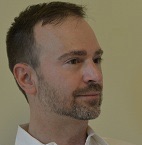 | William Snyder | Linguistics, College of Liberal Arts and Sciences
| William Snyder is a specialist in linguistic theory. His research focuses on the mechanisms of language acquisition in children. A key feature of his work is the Principles-and-Parameters approach, which connects the language acquisition process in children to the patterns of grammatical variation that we see across different languages of the world. |
| Affiliates|Faculty Affiliates |
Speech Language and Hearing Sciences |
 | Tammie Spaulding | Speech, Language, and Hearing Sciences, College of Liberal Arts and Sciences
| My research is focused on maximizing our ability to accurately diagnose specific language impairment in early childhood in order to provide early and optimal interventions to remediate the deficits that children with language impairment encounter. My secondary line of investigation is focused on understanding the cognitive difficulties associated with specific language impairment in order to improve our theoretical understanding of the nature of this disorder and to determine how such deficits impede the language learning process. |
| Affiliates|Faculty Affiliates |
Neuroscience |
 | Timothy Spellman | Neuroscience, UConn Health
| My primary research focus is elucidating the neural circuitry underlying executive function. Most of my work focuses on the prefrontal cortex and interconnected brain regions, and many of our experiments involve in vivo imaging and cell-specific modulation of neuronal activity in mice performing complex cognitive tasks. |
| Affiliates|Faculty Affiliates |
Kinesiology |
 | Sudha Srinivasan | Kinesiology, College of Agriculture, Health and Natural Resources
| My interests lie in understanding links between sub-systems over the course of development including motor-cognitive, motor-social, and motor-communication links. I am also interested in developing multi-system, engaging rehabilitation interventions/assistive technologies that can improve the lives of people with neuro-developmental disabilities and assess the impact of these therapies on neuroplasticity and functional outcomes. |
| Affiliates|Faculty Affiliates |
Psychological Sciences |
 | Ian Stevenson | Psychological Sciences, College of Liberal Arts and Sciences
| My long term research goals focus on understanding how information is represented and processed in the brain - both at the level of individual neurons as well as the nervous system as a whole. In collaboration with electrophysiologists, my lab uses and develops machine learning methods to understand how populations of neurons interact and adapt, and, using behavioral experiments, we develop probabilistic models of human perception and behavior. Our current research and immediate plans revolve around two broad themes: 1) modeling neural dynamics, interactions, and adaptation and, 2) linking neural data with perception, behavior, and learning. These modeling efforts should ultimately allow us to move beyond traditional stimulus-response models of single neurons and, instead, characterize how neural interactions and dynamics give rise to network activity and behavior. |
| Affiliates|Faculty Affiliates |
Psychological Sciences |
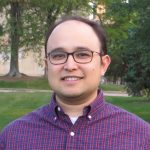 | Umay Suanda | Psychological Sciences, College of Liberal Arts and Sciences
| My research interests lie at the intersection of early cognitive, language and social development. My lab studies the real-time dynamics of toddlers’ language learning environment, how toddlers and their parents shape that environment, and the cognitive and socio-cognitive mechanisms underlying toddlers’ learning. |
| Affiliates|Faculty Affiliates |
Psychological Sciences |
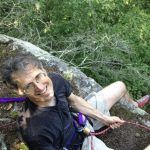 | Whitney Tabor | Psychological Sciences, College of Liberal Arts and Sciences
| Humans seem to work best when they balance their need for order with their need for wildness. I've come to this via the study of language structure (theory of syntax), on the one hand, and language change (grammaticalization) and processing (psycholinguistics), on the other. These days, I'm also studying group coordination. I try to clarify ideas via mathematics and modeling at the intersection of the theory of computation and dynamical systems (e.g., neural networks). |
| Affiliates|Faculty Affiliates |
Physiology and Neurobiology |
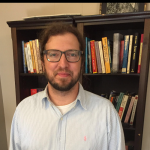 | Geoffrey Tanner | Physiology and Neurobiology, College of Liberal Arts and Sciences
| My research focuses on dietary therapies for neurological disease. Using Drosophila fruit flies as a model system, we study specifically how diet interacts with neuronal excitability and cell survival to prevent onset or to ameliorate symptoms of prevalent conditions such as epilepsy, CTE, and Alzheimer’s disease. |
| Affiliates|Faculty Affiliates |
Speech Language and Hearing Sciences |
 | Rachel Theodore | Speech, Language and Hearing Sciences, College of Liberal Arts and Sciences
| Our research examines the perceptual mechanisms that support language comprehension. We focus on the degree to which language comprehension is shaped by input in the environment, both with respect to perceptual learning in end-state representations as well as plasticity underlying acquisition of speech sound categories in development. We consider these questions using a variety of experimental paradigms including behavioral psychophysics, fMRI, EEG, and computational methods. |
| Affiliates|Faculty Affiliates |
Neuroscience |
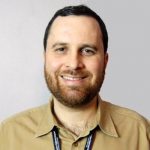 | Ephraim Trakhtenberg | Neuroscience, UConn Health
| Several species of lower vertebrates have the capacity to regenerate and repair the injured central nervous system (CNS). However, in mammals the ability for CNS self-repair is lost during maturation. My goal is to understand the molecular mechanisms of neuronal development and regeneration, and to utilize gained knowledge in developing translational approaches for repairing injured CNS circuits. |
| Affiliates|Faculty Affiliates |
Neuroscience |
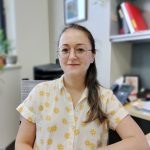 | Sebnem Tuncdemir | Neuroscience, UConn Health
| My lab studies the circuit mechanisms that underlie memory discrimination for adaptive, flexible behaviors in health and disease. We apply novel technologies to target, monitor and control genetically identified neural networks in the hippocampus region using mouse models. |
| Affiliates|Faculty Affiliates |
Physiology and Neurobiology |
 | Anastasios Tzingounis | Physiology and Neurobiology, College of Liberal Arts and Sciences
| My interest is to reveal the mechanisms by which ion channels and associated molecules and signaling networks control excitability in the neonatal and infantile brain. My lab addresses this question using a multidisciplinary approach that combines electrophysiology, pharmacology and microscopy in genetically modified mice lines that we have developed. Much of my work has dissected the cell-type and brain-region specific effects that potassium channel genes have on neuronal physiology. Going forward, I will continue to study the role of ion channels, expanding my research into their role in controlling neuronal firing rates at the single and population level. |
| Affiliates|Faculty Affiliates |
Linguistics |
 | Harry van der Hulst | Linguistics, College of Liberal Arts and Sciences
| My primary research interest is 'phonology', the study of the form of language, both in terms of its physical manifestations and in terms of its underlying mental representations. As such, I formulate and test theories about phonological representations and derivations. This also involves the interfaces between phonology and other components of the grammar (morphology, syntax, semantics and phonetics). I work on the phonology of spoken languages and on the 'phonology' of sign languages, taking a special interest in parallels and differences between these two modalities. Secondary interests are the history of linguistics (specifically phonology), language acquisition (the interplay between environmental input and innate abilities), the evolution of the human mind and language (specifically of phonology) and the expression of meaning through other visual channels such as gesture and (sequential) drawing. |
| Affiliates|Faculty Affiliates |
Haskins Laboratories |
 | Julie Van Dyke | Haskins Laboratories
| My research investigates the memory system that supports language comprehension, with special focus on individual differences. My approach represents a paradigm shift: rather than focusing on memory capacity as a source of difficulty, I focus on the efficiency of the retrieval mechanism. A related goal is to fully specify the cognitive architecture for language processing, including the mechanisms and time course through which needed information is brought in and out of the focus of attention. Research in my lab aims to characterize factors that limit the ability to retrieve linguistic information from memory, especially interference, decay, quality of lexical representations, and cognitive control. We investigate these issues in diverse populations, including skilled and unskilled readers, dyslexics, Specific Language Impairment, and aging adults, utilizing a clinical approach which includes extensive assessments of cognitive and linguistic ability. Primary experimental methods include the speed-accuracy tradeoff procedure, which provides detailed data about the dynamics of information retrieval, and eye-movement measures during reading, which identify both the time-course and location of processing difficulties. More recent work incorporates fMRI and ERP methods to reveal the neurological bases of these processes. |
| Affiliates|Faculty Affiliates |
Neuroscience |
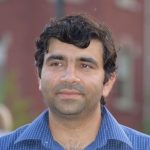 | Rajkumar Verma | Neuroscience, UConn Health
| My research interests are to study of stroke pathophysiology primarily from a pharmacological treatment and post-stroke recovery perspective in a rodent model of ischemic focal cerebral ischemia. Besides that, I am interested in understanding the impact of neuro-immune and growth factors component in post-stroke behavioral recovery. Recently, we began to explore the role of purinergic receptor P2X4, a ligand-gated ion channel, in ischemic stroke owing to their critical role in immunomodulation. |
| Affiliates|Faculty Affiliates |
Psychological Sciences |
 | Maxim Volgushev | Psychological Sciences, College of Liberal Arts and Sciences
| My research is aimed at understanding the neuronal basis of brain functioning, with a focus on sensory systems. In recent projects we study: Synaptic transmission and synaptic plasticity; Encoding of input activity in the output signals (sequences of spikes) by cortical neurons; Origin and cellular mechanisms of slow sleep oscillation; Dependence of sensory processing on the state of the brain. |
| Affiliates|Faculty Affiliates |
Psychological Sciences |
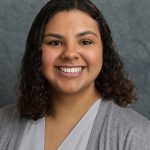 | Kristin Walker | Psychological Sciences, College of Liberal Arts and Sciences
| My research interests span developmental, educational, and clinical fields. My work explores how language and cognitive abilities influence children’s development. I currently investigate the effect language has on numerical cognition under the Study of Language and Math. As a prospective clinician and interdisciplinary researcher, I am motivated to improve educational and clinical interventions, specifically for children who are deaf and/or have autism spectrum disorder. |
| Affiliates|Faculty Affiliates |
Statistics |
 | Xiaojing Wang | Statistics, College of Liberal Arts and Sciences
| My research interests are in Bayesian hierarchical modeling and latent variable models, spatial statistics and time series analysis, subgroup analysis and model selection, constrained inference and nonparametric methods. |
| Affiliates|Faculty Affiliates |
|
 | Chandi Witharana | Natural Resources and The Environment, College of Agriculture, Health and Natural Resources
| My research interests broadly center on methodological developments and adaptations, unsealing faster, deeper, and more accurate analysis of high resolution remote sensing data that would otherwise be possible. I delve into the roots of the problem and aim to close the fundamental gaps; sensory gap and the semantic gap, which affect the real-world modality and the level of abstraction we expect from the data modality |
| Affiliates|Faculty Affiliates |
Speech Language and Hearing Sciences |
| Torri Woodruff-Gautherin | Speech, Language, and Hearing Sciences, College of Liberal Arts and Sciences
| Qualitative Methods; Families with children who are D/deaf and hard of hearing; Inclusive Research; Access to Early Intervention Services |
| Affiliates|Faculty Affiliates |
Nursing |
 | Wanli Xu | Nursing, UConn School of Nursing
| My research focus on cognitive function and symptoms cluster in cancer patients. Using multi-omics approach, I am specifically interested in understanding the impact of chemotherapy for colorectal cancer on cognitive impairment and persistent fatigue in patients with colorectal cancer. |
| Affiliates|Executive Steering Committee|Faculty Affiliates |
Anthropology |
 | Dimitris Xygalatas | Anthropology, College of Liberal Arts and Sciences
| My interests lie at the intersection between cognition and culture. My research focuses on the role of cultural practices in promoting resilience and fostering social cohesion. I do this by bringing the lab into the field. My lab is dedicated to developing scientific methods and technologies that can be used in real-life settings, from religious temples and sports stadiums to political gatherings. |
| Affiliates|Faculty Affiliates |
Statistics |
 | Jun Yan | Statistics, College of Liberal Arts and Sciences
| Network analysis, extreme value analysis, event time analysis, clustered data analysis, stochastic processes, statistical computing, and applications in neuroscience, environmental sciences, and public health. |
| Affiliates|Faculty Affiliates |
Psychological Sciences |
 | Eiling Yee | Psychological Sciences, College of Liberal Arts and Sciences
| I study conceptual processing (a.k.a semantic memory), primarily in the context of language comprehension. I take a multi-pronged approach to investigate these questions, using eye-tracking and imaging methodologies, in normal and impaired populations. Topics: Semantic memory, the neural representation of concepts, spoken word recognition and language processing, multimodal integration, aphasia and other cognitive deficits, and the neural basis of language |
| Faculty Affiliates |
Cell Biology |
 | Lixia Yue | Cell Biology, UConn Health
| We are interested in calcium signaling mechanisms and their potential roles under physiological and pathological conditions. We apply a multidisciplinary approach to study the potential functions of the calcium-permeable TRP channels. We use molecular biology and biochemistry approaches to identify channel proteins and the associated partners; we use patch-clamp to study channel functions and gating mechanisms; and we use in vivo transgenic animal models to investigate physiological or pathological functions of the TRP channels. |
| Affiliates|Faculty Affiliates |
Physiology and Neurobiology |
 | Georgia Zarkada | Physiology and Neurobiology, College of Liberal Arts and Sciences
| My lab investigates the mechanisms regulating the formation and function of vessel networks. We study the blood and lymphatic vascular systems using a combination of genetic mouse models, single-cell transcriptomics, biochemical and molecular approaches, and state of the art imaging techniques. Our goal is to develop new therapeutic opportunities to treat angiogenesis-related diseases. |
| Affiliates|Faculty Affiliates |
Molecular and Cell Biology |
 | Ping Zhang | Molecular and Cellular Biology, College of Liberal Arts and Sciences
| We model neurodegenerative diseases in Drosophila. We use genetic and genomic tools to discover critical genes and pathways that mediate neurodegeneration. |
| Affiliates|Faculty Affiliates |
Statistics |
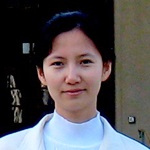 | Yuping Zhang | Statistics, College of Liberal Arts and Sciences
| Research interests lie in development and application of statistical and computational methods to address scientific problems in genomics, systems biology, and complex diseases. |
| Affiliates|Faculty Affiliates |
Statistics |
 | Yao Zheng | Statistics, College of Liberal Arts and Sciences
| My research focuses on the statistical learning of time-dependent data. I am currently working on (i) nonasymptotic statistical learning and (ii) high dimensional time series analysis. The objective of (i) is to develop methods that work well even when the sample size is very small, which usually cannot be achieved by conventional asymptotic tools. The objective of (ii) is to develop efficient and robust inference tools for data exhibiting both cross-sectional and time dependencies. |
| Faculty Affiliates |
Geography |
 | Hanlin Zhou | Geography, College of Liberal Arts and Sciences
| My research interests regarding Brain and Cognitive Sciences focus on the intersection between human eye-level built environment and corresponding perceptions. |














































































































































